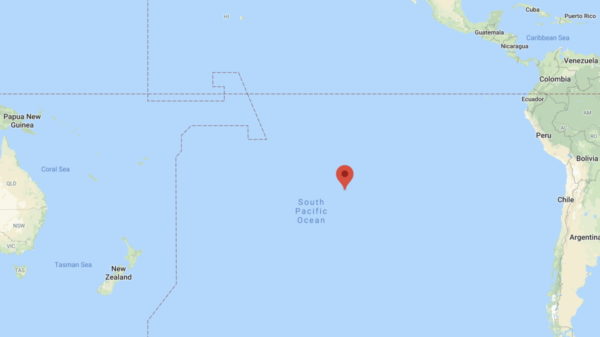Estonia, a small country in the Baltic region of Europe, has become famous in recent years for its booming tech sector and innovative taxation system. It is also where I registered the main entity behind Freedom Surfer back in 2016, which has been active since. In this article, I explain why I chose Estonia and share my experience running an Estonian company.
Why Estonia
Back in 2016, Freedom Surfer was starting to experience rapid growth. To support that growth and to enable the launch of new services, I decided to register a legal entity, and to do so in Estonia. Why Estonia? I looked at all available options, considered all factors and while the US, UK and Canada came ahead in most categories, I chose Estonia as I also needed a holding company in a reputable country and an Estonian company would fulfill both roles efficiently. Indeed, Estonia’s taxation system makes it a great choice not only for active companies but also for holding / passive companies, provided that certain conditions are met.
Estonia’s taxation system
In nearly every countries, companies pay taxes on their profits, on an annual basis, regardless of what they do with said profits. In Estonia, companies only pay taxes on their profits when they distribute them (by issuing dividends to shareholders, by covering non-business expenses / fringe benefits or via deemed distributions). In practice, this means that an Estonian company can be run tax-free, indefinitely, even if it is highly profitable, provided that it never distributes any profits. You can still take money out of the company, as long as you avoid having it labelled as a distribution. For example, you can pay yourself a regular salary (tax-free in Estonia if you are a non-Estonian resident for tax purposes). You can invest in the financial markets and real estate. You can issue arms-length loans to other companies you company to cover your travel expenses (subject to limits) if your travels are related to your business activities.
While this sounds pretty good, it is important to understand that only companies that qualify as Estonian tax residents can take advantage of Estonia’s taxation system. Active companies run from other countries will, in most cases, not qualify as Estonian tax residents (for example, an Estonian company run from Germany will be taxed as a German company, not as an Estonian company, due to place of management rules).
So when does it make sense to register an Estonian company? There are three situations in which it does.
The first one is fairly obvious and is if you live in Estonia. The second one is if you are a perpetual traveler. Indeed, if you move around constantly, the likelihood that you will establish foreign permanent establishments is low. The third one is if you reside in a territorial taxation country / tax haven, and need a holding company in a high reputation country.
Because Estonia has a decent reputation and is an EU country, and because its headline corporation tax rate is fairly high (80/20 or 25%), a holding company registered there will have access to most markets and products while at the same time being protected from CFC taxation (in many cases). The same cannot be said of holding companies registered in the typical tax havens (such as the IBCs). In addition to the usual uses for a holding company, you can also use an Estonian company as a pension vehicle or as a substitute for the registered accounts many countries offer to their residents (401K, RRSP, IRA, Super etc). This makes sense given its low maintenance / compliance cost.
Compliance
Compliance can take a serious toll on a business and the entrepreneur behind it. That is also true in the context of Estonia, where the rules are very much European (heavy and often unfriendly). In the worst case scenario (local staff, VAT registered), you must file three different types of returns, two of them on a monthly basis and one on an annual basis. The first is the Income and Social Tax return, filed with the Tax and Customs Board on a monthly basis. It is used to report salary payments as well as fringe benefits, gifts etc. The second is the Value Added Tax (VAT) return, also filed with the Tax and Customs Board on a monthly basis. The third is the annual report, filed with the Commercial Register on an annual basis. It is used to report the overall financial situation of the company, the payment of dividends and changes in activities / ownership details. Fortunately, companies run from outside the EU by perpetual travellers only have to file the annual report, making an Estonian company a relatively low maintenance entity. I have written a guide covering how to file this return, you can access it here.
Banking
Banking is somewhat of an issue in Estonia. It is a tiny country, with a tiny economy, and a tiny banking sector. Indeed, there are only a handful of “decent” banks and only one that works with non-residents (LHV). If LHV declines your application, you will be stuck using either a non-Estonian business bank account or an EMI (such as TransferWise, Revolut etc) and this will often cause issues with payment processing services (Mollie especially), not to mention the security implications. There is also the issue that no Estonian bank currently accepts remote applications.
Payment processing
It is crucial for a business to be able to accept payments cost efficiently. On this front, Estonia is miles ahead of most other countries (thanks to EU laws on payment processing). For example, I have an account with Every-Pay (an LHV subsidiary) and pay 1.2% to process credit card payments with no additional fixed per-transaction fee. I also have an account with Mollie and pay 1.8% + 0.25 cents for credit card payments and less for SEPA direct debit.
e-Residency
The e-Residency card is essentially a secure ID card that can be used online. It is not a requirement, as far as registering an Estonian company is concerned, but having it will save you a ton of trouble. Also, if it gains a large enough number of users, and so far it is on the way to do that, it could open very interesting opportunities and greatly simplify the way we conduct due diligence and for that alone is worth getting even if you have no plans to register an Estonian company.
My experience
The first thing I did after choosing Estonia as my company’s new home was to book a plane ticket to Tallinn. I like doing this sort of things in person, meeting all parties involved, shaking hands. I already knew about XOLO (then LeapIN) so as soon as I landed in Estonia, I dropped by their office and hired them to register my company. Within 24h my company was registered and a meeting with the largest local bank (LHV) was arranged. I met with the bank manager a few days later and the account was opened on the spot, in what is still my shortest business bank account opening meeting ever (less than ten minutes). I have to warn you, however, that while opening the account took only minutes, receiving my debit card took weeks. I also opened an account with Swedbank, a Swedish bank with a local presence in Estonia. Opening the account there took an hour and was also done on the spot. In both cases, my debit cards were sent by mail to XOLO’s office. I had FedEX pick them up from there and deliver them to me.
Once my company was registered and my bank accounts opened, I left Tallinn. Remotely, I setup a payment processing account with Every-Pay. The way it works is simple, when you open an LHV account, you inform your banker that you would like to use their payment processing service. When your account is activated, they make you an offer. In my case, they offered to process all transactions at the rate of 1.2% (no other fees). If you accept their offer, they setup the account and send you your unique API keys. You can then install their plugin (if you use wordpress, woocommerce etc) or code your own implementation. Transactions processed before 23h59 are deposited into your business bank account at 13h on the following day, seven days a week. So far, I am very happy with the service and customer support has been excellent. I have not noticed any problems with declines (although the rate is slightly higher than it would be with a US / UK / Canadian gateway).
I have also setup a business TransferWise (now Wise) account and linked it to my LHV bank account. LHV uses TransferWise to process their non-SEPA transfers, an interesting and fairly rare setup (only a few banks offer such a feature). Once both accounts are linked, you can literally send transfers from the online banking portal in one click. LHV charges no fee to use the service, you only pay the usual TransferWise fee. This has proven to be very useful and is a feature I would like to see more banks implement.
Since then, I have migrated most of my payment processing to Mollie as I like their implementation better. I have also moved away from XOLO as I found their service to be too restrictive and unnecessary. I have handled compliance on my own since early 2017 and that is what I recommend you also do, unless you have extremely complex transactions (in which case XOLO is not likely to be a good fit anyway).


































